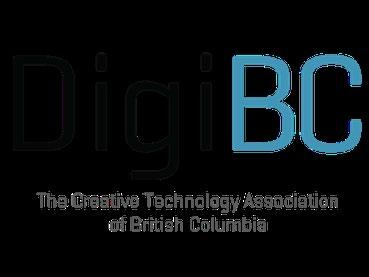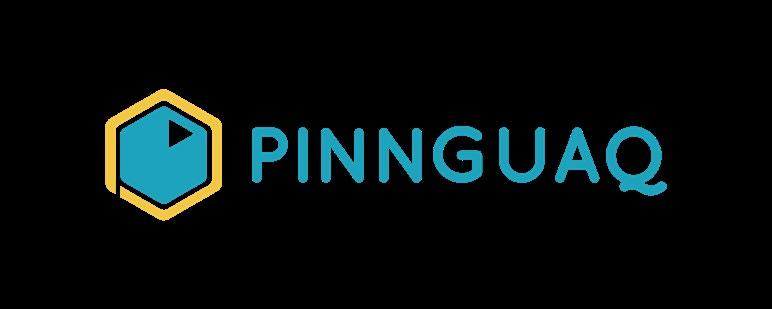ICTC · CTIC Annual Report
2022-2023



I am delighted to present to you ICTC’s annual report for 2022-23, reflecting on the developments, endeavours, and growth over the past year.
Last year, the Canadian economy witnessed both triumphs and trials as inflationary trends took hold of our economy. The structural transformation of the economy also saw a continued shift toward environmentally conscious businesses as investors increasingly favoured ESG-ready (Environmental, Social, and Governance) enterprises.
Labour demand in the overall economy also remained strong, with around 290,000 net new jobs created in the first six months of 2023, according to the Bank of Canada. In the digital space, a combination of higher interest rates and a reversal of the over-hiring by large companies during the pandemic pushed companies to restructure and adjust to a new economic cycle. This, in turn, created unique opportunities for micro and small businesses in Canada to access some of the best talent in the market. The uptake in technology adoption also accelerated in all industry verticals, according to our research, including the health sector, education, advanced manufacturing, sustainable transportation, media and creative industries, telecommunications, smart infrastructures, intelligent communities, and many others. The combined factors of heightened business digital transformation and talent demand by micro and small and midsize businesses created, on aggregate, higher job growth in the digital labour market that exceeded pre-pandemic levels by 20%.
The uptake in digital adoption also came with its own set of challenges in ransomware, phishing, and other cyberthreats, highlighting the critical importance of maintaining robust cybersecurity measures in Canada to protect data, businesses, infrastructure, and intellectual property, among other assets.
As ICTC continues to evaluate this dynamic digital landscape, we will endeavour to offer the best insights and capacity-building programs to assist businesses, policymakers, and academic institutions in navigating the opportunities offered by this growth economy. Our strategic focus in the next number of years will continue to focus on stimulating economic growth, nurturing sustainable Canadian businesses, empowering a talented and entrepreneurial workforce, and promoting a safe, private, and secure business environment.
Looking ahead, we are excited about the prospects in the digital space, and I extend my heartfelt gratitude to each member, partner, and stakeholder for your unwavering support, trust, and contribution to ICTC’s success. Our journey is a testament to the spirit of collaboration, and I am excited, as the Chair of ICTC, to continue leading this remarkable organization into an even brighter future.
Dr. Thomas P. Keenan, FCIPS, ISP, ITCP Chair, Board of Directors
As we close another remarkable year, it is my privilege as ICTC’s President and CEO to present our annual report, highlighting the notable achievements and significant milestones we have accomplished in the past year.
Last year, Canada’s economy stood at a crossroads where the convergence of technology, environmental consciousness, and economic growth continued to present a unique opportunity despite inflationary pressures. The transformative power of advanced technology remained critical for creating innovations, expanding markets, and solving the world’s most pressing issues. Artificial intelligence, robotics, and clean energy solutions have the potential to revolutionize industries, enhancing productivity, reducing environmental impacts, and fostering economic growth.
In this fast-paced and ever-evolving digital world, ICTC has been at the forefront of research, policy development, and workforce empowerment. Our mission to guide industry leaders, policymakers, academic institutions, and Canadians at large in navigating the vast opportunities presented by the digital realm has never been more crucial, and I am thrilled to say that we have excelled in fulfilling this responsibility.
First and foremost, our research initiatives have yielded leading-edge insights that have helped influence the trajectory of the Canadian digital economy. Our dedicated team of experts has tirelessly pursued innovative ideas, delving deep into emerging technologies, socioeconomics, labour markets, and trade and investment. Our research, spanning foreign direct investment attraction, clean energy and pathways to net zero, agri-food sustainability, making smart choices about classroom technologies, nextgeneration interactive media, labour market forecasts,
and many others, has informed and inspired a broader narrative across Canada’s policy-making circles and budget cycles. Our comprehensive studies and neutral policy advice have provided invaluable guidance to businesses, governments, and educational institutions seeking to thrive in this dynamic landscape.
Equally significant is our steadfast commitment to workforce development. Recognizing the critical importance of digital skills in the modern digital era, we have spearheaded numerous initiatives across Canada to equip Canadians with the necessary expertise to navigate and succeed in the digitalbased economy. Through strategic partnerships with educational institutions, vocational training providers, and industry leaders, we have empowered several thousand Canadians to seize the abundant opportunities presented by the digital landscape. This has included reskilling and upskilling programs to assist Canadians in transitioning to growth careers, work-integrated learning for post-secondary students, employment programs for recent graduates, cyber education, immigration employment programs to empower newcomers to better participate in Canada’s digital-based economy, among other initiatives that help women advance in the digital economy and programs to prepare K–12 youth for a digital future.
Looking back on the past year, I am humbled by the collective efforts of our talented and dedicated team. Their commitment to excellence, passion for driving change, and dedicated pursuit of our mission have been truly inspiring. I would like to extend my heartfelt gratitude to our board members for their guidance and support, and to our partners and stakeholders for their unwavering support of our mission and for helping us collectively explore new frontiers in the digital-based economy.
Namir Anani ICTC President and CEO
As a trusted advisor and a reliable delivery partner, the Information and Communications Technology Council (ICTC) is a neutral, not-forprofit national centre of expertise with the mission of strengthening Canada’s digital advantage in the global economy. ICTC strives to stay ahead of the curve as digital technologies rapidly advance and transform industries and society. For over 30 years, our goal is to ensure that technology is utilized to drive economic growth and innovation and that Canada’s workforce remains competitive on a global scale.
To accomplish our mission, our diverse team comprises economists, labour market specialists, technologists, social scientists, workforce solutions providers, enterprise development experts, communications and media specialists, operational and financial management experts, and policy solutions strategists. As a fully bilingual organization in French and English, we partner with a vast network of industry leaders, policymakers, and academic institutions and focus on areas like digital skills development, technology adoption, and innovation. Our work focuses on forward-looking research, practical policy advice, and capacitybuilding solutions for individuals and businesses.
We assist government and industry leaders in recognizing current and future opportunities and developing strategies to fully exploit the potential of the digital economy. We also help Canadians of all backgrounds acquire the skills they need to be successful in Canada’s economy while helping businesses transform and improve their competitiveness for today’s and tomorrow’s marketplace.
We embrace teamwork and partnership in a spirit of creativity and innovation that values diversity and community engagement. We strive for excellence in achieving our mandate with integrity, accountability, and responsiveness while driving the greatest sustainable and socioeconomic goals for Canada.
• Stimulating economic growth
• Nurturing sustainable Canadian businesses
• Empowering a talented and entrepreneurial workforce
• Promoting a safe, private, and secure business environment
• Inspiring an equitable and inclusive economy
OUR STAFF:
1,290
media mention of our research and programs.
2,029
employers were supported in filling open digital roles with skilled talent.
14
4,048
post-secondary students secured placements with Canadian employers through our WIL Digital program, 69.3% participation from underrepresented groups.
in-depth and forward-looking research reports inspiring critical agendas for the digital economy on topics that include labour market forecasts, smart cities, sustainable digital economy, foreign investment, inclusive smart economies, gender equity, educational technology, and others.
17,789
3
255
K–12 students across Canada were trained in cybersecurity.
tools in a new branded website that provides labour market insights, skills assessments, and a Skills Mapping tool for job seekers to chart career pathways to in-demand jobs.
participants displaced from Alberta’s oil and gas sector were upskilled for the digital economy.
7,998
job seekers from underrepresented groups were provided access to upskilling opportunities through our programs.
The combined efforts of ICTC’s research, policy, and capacitybuilding programs have informed and inspired a broader narrative across Canada’s policy-making circles and budget cycles while empowering a skilled and diverse talent workforce and a robust business environment to propel Canada’s economy in a socially responsible and sustainable environment.
Canada’s resilience shone through in a year of growing challenges for the global economy and increasing digitalization after the COVID pandemic. As labour market conditions tightened, Canadian businesses—particularly Canadian tech employers— struggled to fill unprecedented job vacancies. Our workforce capacity-building programs and new research into key issues in the digital economy helped chart a path toward sustainable growth and prosperity into 2023 and beyond.
Our report, Attracting FDI Toward Canada’s Digital Economy: COVID-19 and Beyond,1 honed in on the pandemic’s immense impact on Canada’s economy. A 5.2% drop in GDP in 2020, surpassing the 2008 financial crisis, showed that Canada was not immune to the widespread disruption. However, despite the challenges, Canada’s digital economy emerged resilient. A pandemic-driven digitalization surge across industries created unprecedented potential for Canada to attract foreign direct investment (FDI) and elevate its digital economy. Notably, 2021 witnessed a remarkable turnaround, with Canada securing over $75 billion in FDI inflow, second only to the U.S. among OECD nations.
The report noted an increased appetite for projects focused on emissions reduction, clean energy, and environmental sustainability, presenting a tremendous opportunity for growth. To harness this potential fully, our research emphasized the critical role of maintaining and expanding the infrastructure necessary to support digitization and crossindustry digital service delivery. This infrastructure is foundational to unlocking the true potential of Canada’s digital economy, thus amplifying the country’s appeal to global investors.
During the pandemic upheaval, Canada’s retail sector underwent a profound transformation, as explored in our Striving to Be Smarter: The Evolution of Intelligent Retail in Canada2 report. With the rise of health restrictions in 2020, Canadian retail digitization rapidly accelerated. Brick-and-mortar stores adopted technology, engraining digitalization in the sector. Innovation thrived in areas such as payments, logistics, and digital marketing, enabling retailers to pivot and retain customers in the face of adversity.
The retail trade sector, which comprised 5.2% of Canada’s economy in 2021, underwent a decade of technical evolution within a remarkably condensed timeframe. Intelligent retail attracted the highest level of per capita venture capital investment of any sector, boosting its reputation globally.
1 Cutean, A., Hamoni, R., Kotak, A., Ye, Z. “Attracting FDI Toward Canada’s Digital Economy: COVID-19 and Beyond.” November 2022. Information and Communications Technology Council (ICTC). Ottawa, Canada. https://www.digitalthinktankictc.com/reports/ attracting-fdi-toward-canadas-digital-economy
2 Herron, C., and Toor, M., Striving to Be Smarter: The Evolution of Intelligent Retail in Canada. Information and Communications Technology Council (ICTC), August 2022. Ottawa, Canada. https://www.digitalthinktankictc.com/reports/striving-to-be-smarter
At the same time, however, our report underscored the pressing issue of talent acquisition and retention. While automation and intelligent retail technologies created new employment opportunities, traditional retail workers required support in acquiring new skills to remain competitive in this evolving marketplace.

To help address Canada’s growing digital talent shortage, ICTC also developed a new course as part of our WIL Digital e-Learning Courses3, which expands the knowledge and skill sets of postsecondary students to better align with employer
needs. The new “Digital Transformation” e-Learning Course gives students a foundational understanding of digital transformation (DX) practices in Canada. DX is a complex process that synchronizes technology, organizational change, and adaptability to help organizations remain relevant and competitive in a rapidly changing world. Our course provides an overview of the main technologies, processes, and DX considerations to make WIL Digital students more attractive candidates to employers.
3 ICTC's WIL Digital provides employers with a wage subsidy to hire post-secondary students, while our WIL Digital e-Learning courses provide students with digital industry skills and knowledge to better align student development with employer needs. Learn more in the “Talented and Entrepreneurial Workforce” section.
Climate change, deforestation, and environmental damage threaten the stability of our economies and food systems; without clear and decisive action, these dire consequences may become irreversible.
The relationship between the green economy and the digital economy is complex. Technology solutions like clean tech and clean energy are critical to limiting adverse environmental impacts, but the rapid growth of the digital economy is also increasing the tech industry’s energy consumption, carbon emissions, and material needs. While the digital economy is not a primary driver of environmental damage, our Thinking Green: Building a Sustainable Digital Economy for Canada4 report found that meeting targets like the United Nations Framework Convention on Climate Change (UNFCCC) Paris Agreement requires all industries to curb their environmental footprints.
The green and digital economies are similar in that they are both the outcome of two monumental trends reshaping the global economy: the international community’s attempt to reverse the environmental harms of the last century and rapid digitalization. It will be increasingly important for Canada’s tech sector and organizations like ICTC to focus on this intersection of the green and digital economies.
Globally, cities face many challenges in economic development, sustainability, health and wellness, and infrastructure. The concept of smart cities is a response that uses digital technologies to solve some of these issues and improve the delivery of services. European nations are leaders in smart cities, and our Lessons from Abroad: Smart Cities Developments from the European Region5 report highlights various examples of smart city developments, including their benefits and challenges, the impact of the COVID-19 pandemic, general labour market considerations, and best practices. The study recommends that Canadian cities consider the following principles when developing future smart city projects:
• Citizen engagement is crucial for success
• Privacy and civil rights, which can be challenged by technology adoption, need to be protected
• Digital technology can be used responsibly to find new efficiencies, innovation, and improve services for local citizens
Amid the buzz surrounding smart cities and their potential for implementing clean technology in everyday life, it’s essential not to overlook the human element. Smart cities need to be fundamentally designed for people, with a vision of democratizing access to technology and creating inclusive urban spaces. Our report Bringing a Smart City to Life: Understanding Talent Development, Attraction, and Retention6 found that a skilled and diverse labour force is essential to smart city development. Soaring housing prices and the cost of living make conversations about sustainable and equitable smart cities essential.

Successful smart city implementation requires understanding talent supply and demand across Canada’s municipalities. According to our Labour Market Forecasts for Canada’s Inclusive Smart Economy7 study, post-secondary graduates remain the largest single source of labour supply, but increasing numbers of workers with microcredentials and other non-traditional educational pathways will play an important role, alongside workers looking to transition to new careers through reskilling or upskilling. Immigration will also be a key supply channel, especially in Canada’s largest cities that predominantly attract newcomers.
ICTC’s report Moving Toward an Inclusive Smart Economy for Canada: The Human Talent Engine that Powers Smarter Cities8 found that the demand for talent in Canada’s smart cities largely depends on the type of projects municipalities develop. As digitization sweeps through the Canadian economy, municipalities struggle to compete for suitable talent—specifically software developers, project managers, cybersecurity professionals, and data professionals.
6 Akshay Kotak, Faun Rice, and Maya Watson, Bringing a “Smart City” to Life: Understanding Talent Development, Attraction, and Retention, (Ottawa, ON: Information and Communications Technology Council, August 2022). https://www.digitalthinktankictc.com/ reports/bringing-a-smart-city-to-life
7 Akshay Kotak,Labour Market Forecasts for Canada’sInclusive Smart Economy(Ottawa, ON: Information and Communications Technology Council, August 2022). https://www.digitalthinktankictc.com/reports/labour-market-forecasts-for-canadas-inclusivesmart-economy
8 Davidson, R., Herron, C., Ratcliffe, J., Quan, T., Watson, M. Moving Toward an Inclusive Smart Economy for Canada: The Human Talent Engine that Powers Smarter Cities (Ottawa, ON: Information and Communications Technology Council, September 2022). https:// www.digitalthinktankictc.com/reports/moving-toward-an-inclusive-smart-economy-for-canada
ICTC developed two new WIL Digital e-Learning courses9 for post-secondary students to gain a foundational understanding of clean and sustainable technologies, which are highly relevant to smart city development.

Our “Clean Energy and Pathways to Net Zero” course explores how clean energy can help meet our world’s changing environmental, social, economic, and political realities. Students review key concepts in clean energy and the path to net zero. Our “Sustainable Agriculture” course provides domain-specific foundational knowledge, pointing the way to meaningful careers in agriculture. The course responds to the knowledge gaps that agrifood employers have noted among typical postsecondary student graduates.
Building a sustainable and inclusive digital economy for Canada requires a concerted effort from all sectors. Embracing clean technology, nurturing diverse talent, and focusing on human needs in smart city development are crucial steps in achieving this goal. By equipping the future workforce with the necessary skills and knowledge, we can build toward a more equitable and sustainable future for Canada.
9 ICTC's WIL Digital e-Learning courses provide post-secondary students with digital industry skills and knowledge to better align student development with employer needs. Learn more in the “Talented and Entrepreneurial Workforce” section.
Our report Digital Talent Outlook 202510 highlighted the demand for 250,000 digitally skilled workers by 2025, prompting ICTC to adopt a comprehensive approach to help bridge this talent gap. Our strategy involves upskilling and reskilling Canadians, facilitating work-integrated learning opportunities for post-secondary education students and recent graduates, and embracing internationally educated newcomers. To further address the demand for digitally skilled talent, ICTC is conducting more research and enhancing our existing programs to help Canadians acquire the knowledge and skills to remain globally competitive and contribute to a thriving post-pandemic economy.
With its persistently high demand for digitally skilled talent, Ontario plays a critical role in shaping an equitable and inclusive postpandemic recovery. During the pandemic shutdowns, manufacturing, construction, retail, and hospitality sectors experienced disruption and substantial transformation as they embraced Industry 4.0 technologies and digital platforms to survive and grow.
These shifts also changed the landscape for worker skills, emphasizing the importance of digital and technical competencies. To better understand these developments, ICTC organized the event “Shaping an Equitable and Inclusive Post-Pandemic Recovery,” which discussed the disproportionate impacts of the pandemic on marginalized groups and the need for an inclusive recovery as essential workers reconsidered their career paths. The event fostered dialogue across sectors and emphasized skill development pathways.
ICTC conducted research as part of a multi-sector initiative to explore the role of micro-credentials in competency-based training and professional education in Canada. The goal is to contribute to defining and validating micro-credential standards and to develop a roadmap for their implementation. The research involved consultations with universities, colleges, and other subject-matter experts and employer perspectives through industry roundtables. In spring 2023, a pilot program was launched, offering micro-credentials in big data and cloud computing.
10 Ivus, M; Kotak, A. (August 2021). Onwards and Upwards - Digital Talent Outlook 2025. Information and Communications Technology Council (ICTC). Ottawa, Canada.

With youth unemployment at 10.1% compared to the overall unemployment rate of 4.5%, practical work experience can provide an important advantage in helping post-secondary education graduates find work. ICTC’s Work Integrated Learning (WIL) Digital program has been invaluable in combining formal education with real workplace experience, fostering employability skills and useful contacts for students and work-ready talent for employers.
In its sixth year, ICTC’s WIL Digital demonstrated its value in the fiscal year April 1, 2022, to March 31, 2023, with 4,048 student placements, of which 319 were in Quebec. The program leveraged collaborative ties with 1,375 employers that benefited from wage subsidies to engage with emerging talent. Additionally, partnerships with 144 post-secondary education institutions underscored the program’s multifaceted approach. Our commitment to inclusivity was also demonstrated by the 69.3% of WIL Digital students from underrepresented groups.
Under the WIL umbrella, e-Learning Courses respond to a market need for students with “workready skills training.” Beyond technical and domainspecific knowledge, work-ready skills also include critical thinking and problem solving, which ensures that graduates become confident employees ready to contribute to an employer’s business. Last year, 473 students participated in e-Learning, with 333 receiving certificates. Some 206 employers benefited from the program. Popular ICTC e-Learning Courses such as Artificial Intelligence,
Service Design, and Cybersecurity saw significant enrolment. The program’s success is also evident in the high 78% student satisfaction rate. Associated “WIL Digital’s Lunch and Discovery” sessions offered students professional development, featuring accomplished speakers and subject experts, 43% of whom identified as women and 56% identified as persons of colour.
Our Youth Dividend program further strengthens Canada’s digital workforce, addressing talent shortages in Software Development, Data Analysis, Data Science, Business Analysis, Digital Marketing, Sales, and UX/UI Design. Since 2021, 231 youth interns completed the program, with an impressive 95% securing digital tech roles after completion. The program’s practical work experience and technical skills training also fill a gap that allows youth to find employment more successfully. With 80% of participants from underrepresented groups and 60% identifying as female, Youth Dividend promotes inclusivity. A host employer satisfaction rate of 100% speaks to the program’s value.
Digital technologies played a key role in the survival and success of businesses during and after the COVID pandemic. To support small and mediumsized enterprises, the Canadian government launched the Canadian Digital Adoption Program (CDAP). ICTC’s partnership with Magnet on CDAP involves promoting the program to employers and youth and providing CDAP youth participants access to ICTC’s Agile Industry Mindset (AIM) course.
The dramatic collapse of oil and gas prices in 2014 and the subsequent seismic shift it precipitated left many mid-career professionals in Alberta unemployed. In response and under the leadership of Calgary Economic Development (CED), ICTC’s involvement in EDGE UP 2.011 helped displaced energy industry workers pivot to digital-economy jobs, meeting the province’s high-tech demand while strengthening Alberta’s economic resilience. As a delivery partner, ICTC supported 255 participants in their transition to tech jobs with a facilitated Transition to Tech course fostering selfawareness, confidence, and agility in making an effective career pivot.
Immigration is crucial to supporting Canada’s digital economy and sustaining the labour market. ICTC’s GO Talent program has worked with 1,338 pre-arrival clients from various countries, including India, Nigeria, and Lebanon (the top three source countries). It prepared over 500 internationally educated professionals to enter Canada’s workforce before arrival by bridging skill gaps and identifying shortages in the digital workforce. Over 20% of clients identified as female, and over 13% were under 30. The program provided crucial services such as needs assessment, labour market information sessions, resume reviews, job matching, monthly employment webinars, and IT professional designation validation. This resulted in 200 clients securing employment in their respective fields in Canada, either pre- or post-arrival.
Unveiled in February 2023, ICTC’s eTalent Canada is set to revolutionize the Canadian job market with cutting-edge resources, critical labour insights, and upskilling course recommendations. As a catalyst for Canadian digital transformation, eTalent Canada identifies talent demands and serves as a valuable website for job seekers, employers, and educators. Job seekers benefit from features that include the latest Canadian Job Market Information, understanding regional skills gaps for in-demand roles (supported by Employment Data), and access to ICTC’s proprietary Skills Mapping Tool, which assesses job seekers’ technical and human-centric skills and aligns them with in-demand jobs. The tool includes 61 jobs and 412 skills. Employers benefit by strengthening their digital-talent pipeline and upskilling their existing workforce with various resources, including diversity, equity, and inclusion information and access to wage subsidy work-integrated learning programs. Educators can also utilize eTalent Canada to strengthen the technological literacy of Canada’s future workforce, offering opportunities for students to enrol in digital skills learning, competitions, and other resources. This free platform is continually updated and available in English and French, effectively responding to the Canadian workforce’s evolving digital skills and literacy needs.
Increased digitalization by businesses and government has led to more cybercrime. A survey by the World Economic Forum in 2021 estimated the global cost of cybercrime at US$6 trillion that year. Unfortunately, Canada ranks third as the most exposed country to cybercrime out of 187 countries, with cybersecurity attacks costing an average of $5.7 million per incident.
This trend has led to a greater demand for cybersecurity professionals in Canada and abroad to help protect systems and resolve issues when breaches occur. Consequently, ICTC formed INACCT (the ICTC National Advisory Committee for Cybersecurity Training) to examine cybersecurity labour market issues. Our Cybersecurity Talent Development: Protecting Canada’s Digital Economy12 report explores the existing state of the cybersecurity labour market in Canada and features potential policy solutions. International and Canadian data, supplemented with ICTC primary research from employers and students, considered alternative pathways for obtaining cybersecurity credentials and experience to enter this highgrowth field.
The study found that many students leave the cybersecurity field (almost a third of male students and about half of female students). At the same time, burnout among current cyber professionals is common, and Canada may face greater challenges in addressing these talent demands than the U.S.
In 2021, the International Association for Information Security Leaders tallied 123,696 cybersecurity professionals in Canada. While this is a large increase compared to two years earlier, the field is still short of 25,000 professionals (about one in six postings go unfilled). With many students leaving the field, efforts are needed to promote cybersecurity careers. This requires interacting with students at a young age to foster interest in future cybersecurity careers. It is essential that this effort also includes young women and underrepresented groups.
Young people need to be made aware of the significant employment opportunities in the cybersecurity field and how to qualify for these roles. To this end, in collaboration with educators and industry professionals, our Jump-Starting Digital Careers (JDC) program offers learning pathways for K-12 students. In 2022–23, we supported 17,006 students across all JDC initiatives. The program encompasses various student engagement initiatives and educational opportunities, such as our Student Learning CyberDays and a campaign in collaboration with Knowledge Flow that saw 2,647 student participants across Canada.
Moreover, cybersecurity competitions like ICTC’s CyberTitan, which engage middle and high school students, play a crucial role in inspiring and attracting young individuals to pursue careers in cybersecurity. More than 612 students were involved in the lead-up to the CyberTitan VI finale, representing 144 teams, including 12 teams of young women. CyberTitan requires participants to think creatively, apply problem-solving skills, and develop innovative solutions to complex challenges. By fostering interest and providing concrete opportunities for students to explore the field, the competition helps build the cybersecurity talent pipeline.
For the first time in 2023, 171 Ontario Francophone students participated in cybersecurity skills development in French through our pilot project, “Les journées de la cybersécurité au secondaire” (Secondary School CyberDays).
ICTC research identified that micro-credentials and work-integrated learning programs are wellreceived by students in cybersecurity, highlighting another way forward to help address industry needs.
Our Cybersecurity Training and Work Integrated Learning Program also works to increase diversity in Canada’s cybersecurity workforce. The project encourages women and gender-diverse people in science, technology, engineering, and mathematics (STEM) to consider the cybersecurity sector. Some 52 students have participated in the pilot, which includes Microsoft cybersecurity courses and certifications, experiential learning opportunities, mentorship, and work preparation components.
Over the past 20 years, accelerated by COVID-19, school boards and educators have incorporated many digital technologies in their work. Education technology, or edtech, is broadly defined as any technology that facilitates learning and is a regular K-12 procurement item.
Our study, Buying Into Learning Outcomes: Educational Technology Procurement Policy and Practice in Canada,13 explores various procurement strategies, best practices, and recommendations for Canada’s school systems. Edtech buyers have widely varying resources, skills, and processes. Procurement often involves many stakeholders, including school administrators or end users, such as teachers or principals. Our report found that the individuals involved in purchasing decisions have various resources available, which influence the quality of edtech purchases. More work is needed across Canada to improve procurement resources and facilitate connections between edtech buyers at various K-12 levels, school boards, and regions.

Over the past decade, technology workers in Canada have significantly expanded their ranks, making up approximately 11% of the total workforce, with a projected 2.26 million ICT workers by 2025. The demand for digital skills is expected to rise further. However, the representation of marginalized people in tech remains low. To promote equity and diversity in Canada’s technology sector, ICTC conducts research and implements capacity-building programs for underrepresented groups, including women, Indigenous, and newcomers.
The Indigenous Leadership in Technology (ILIT)14 report addresses a lack of labour market intelligence tools for Indigenous communities in Canada’s expanding digital economy. Research led by the First Nations Technology Council, with ICTC’s expertise in partnership with Reciprocal Consulting, produced a report on Indigenous access to technology opportunities. It explores key priorities for technology workforce capacity building among Indigenous communities across British Columbia and looks at the barriers, enablers, and opportunities for Indigenous leadership in the tech sector.
Gender diversity in Canada’s digital economy remains a challenge, with the representation of people of marginalized genders lagging. Our report, Gender Equity in Canada’s Tech Ecosystem - Attracting, Retaining, and Supporting Entry- and Mid-Level Talent15, found that despite comprising 47% of the workforce, women’s representation in tech has stagnated at approximately 30% over the last decade. This systemic gender marginalization is not limited to Canada, as low levels of gender diversity persist worldwide. However, embracing gender diversity is critical for strengthening Canada’s digital economy, as it has been shown to correlate with increased profitability and innovation. Through consultations with tech workers and employers, opportunities were identified to increase gender equity in the workplace. These opportunities revolve around implementing strategies such as inclusive language in employer branding, using bias-mitigating techniques in candidate sourcing, ensuring equitable interview environments, promoting transparent salary negotiations, and implementing leadership-driven policies to create an inclusive culture.
14 Indigenous Leadership in Technology: Understanding Access and Opportunities in British Columbia, First Nations Technology Council, Information and Communications Technology Council, Reciprocal Consulting Inc., (2022), Canada.
In response to the pressing need for gender equality in Canada’s technology sector, ICTC designed the Ambassador program to drive productivity and innovation in the digital economy by focusing on attracting, retaining, and supporting entry- and midlevel female talent. Over the year, 72 ambassadors and 426 businesses in Alberta, Ontario, Quebec, and Nova Scotia joined efforts. Four in-person regional events in Montreal, Halifax, Toronto, and Calgary drew 253 businesses, attended by professionals from diverse backgrounds. Their valuable feedback reflects the program’s positive impact of this initiative in fostering positive change within the tech industry.
To further identify strategic avenues for enhancing gender equity in the digital economy, our research has led to the recent launch of the Gender Equity Assessment Tool. This tool is an important resource, pinpointing actionable measures and essential resources that the broader technology ecosystem can leverage to facilitate a meaningful advancement for women in tech. These dedicated efforts underscore our determination to address gender diversity challenges and promote inclusivity in the tech sector.
Despite the growing number of women entering science, engineering, and technology roles, many highly qualified women choose to leave these positions mid-career. ICTC’s Pathways for Success –Women Economic Empowerment program, in part, addresses this issue and empowers women in mid to senior levels to overcome systemic barriers in their careers, leading to a more inclusive and equitable work environment.
In February 2023, we hosted the “Black Women Leadership in Post-Pandemic Recovery” event, celebrating tech achievements, fostering diversity, and empowering Black women leaders while addressing anti-racism. The panel discussions featured accomplished leaders sharing experiences in the digital economy. With 80 participants, the event highlighted the importance of a holistic approach to nurture diversity and strengthen Canada’s economic fabric.

Canada is a leader in higher education. Among G7 nations, 57.5% of working-age Canadians hold college or university credentials, largely due to educated immigrants. However, many foreign-educated workers do not work to their full capabilities (more than 25% are overqualified for their current jobs). This issue, in the context of the million job vacancies and 40% of businesses reporting staff shortages, will need to be addressed.
ICTC’s Pathways to Employment for Newcomers program accelerates the job prospects of internationally educated professionals (IEPs) in Canada’s digital economy. Through the program, 168 IEP job seekers have secured placements in the ICT sector, contributing to innovation and bridging skill gaps. The program’s wage subsidy component incentivizes employers to hire IEPs, promoting diversity and ensuring a skilled workforce. The business skills training component, including Agile Industry Mindset (AIM) and Scrum training, has helped IEPs integrate into the Canadian workforce. Pathways to Employment for Newcomers allows highly skilled immigrants to reach their career potential, reinforcing Canada’s strength in tech and innovation.
ICTC also supports underrepresented groups with 12 months of online professional and personal skills training in partnership with Microsoft. The Digital Equity and Employability Pathways (DEEP) initiative, launched in 2019, empowers underrepresented groups with training and industry certifications for in-demand jobs, resulting in 1,506 job placements during the fiscal year April 1, 2022, to March 31, 2023. Additionally, Microsoft learning content is integrated into other ICTC programs, enhancing professional development opportunities with 3,619 learning participants and 990 certifications granted to date.



Alberta Ministry of Jobs, Economy and Trade



















A special thank you to all our partners who have collaborated with ICTC in the 2022-2023 year! We are grateful for your continued support and are looking forward to future endeavours.
ACE-WIL
Amazon Web Services
Association Edteq
Bow Valley College
Carleton University
Cégep Garneau
Centre Wellington District High School
City of Toronto
Civiconnect
Clean Foundation
Cognizant
Collège Boréal
Collège catholique Samuel-Genest
Concordia University
Experiential Learning Office
Conseil de l’innovation du Québec
Développement économique de l’agglomération de Longueuil (DEL)
Downtown Niagara Falls
Business Improvement Area
Earl Haig Secondary School
École secondaire catholique Marie-Rivier
École Secondaire de Lamothe-Cadillac
École Secondaire Jeunes sans frontières
École secondaire publique Omer-Deslauriers
École Secondaire Sainte Famille
EMILI Canada
Evergreen
Future NB
Genoa Design International
Government of Nova Scotia
Haltech Regional Innovation Centre
HCLTech
Ignite Atlantic
Indigenous Friends Association
Interactive Ontario
Joint Economic Development Initiative (JEDI)
Keyin College
Learning Labs
McAdam Middle School
McGill University
Software Engineering Department
Microserve Ltd.
Mount Royal University
Continuing Education
NCR Canada Corp
NineIrons Solutions Inc.
OceansAdvance
Old Scona Academic High School
One North End
PCL Construction
Industrial Management Inc.
Pembina Trails Early College
Planet Hatch
Prince Edward Island IT Alliance
Propulsion Québec
Queen’s University
Riipen
Rogers Cybersecure Catalyst
Saurus Consulting
Sisler High School
Solace Technologies
Southern Alberta Institute of Technology (SAIT)
Teck Resources
Tribe Network
University of Calgary Continuing Education
University of Ottawa
William Lyon Mackenzie Collegiate Institute
Women in Cybersecurity (WiCyS)
YMCA of Greater Toronto










Chair
Dr. Thomas P. Keenan, FCIPS, I.S.P., ITCP
Professor, Faculty of Environmental Design, University of Calgary
Secretary & Treasurer
Pina Marra
Senior Director, Regulatory Affairs – Desjardins
Gary Davenport
Past President – CIO Association of Canada
Hana Pika
Consultant
Jack Noppé
Jamie Darch
Principal, Jamie Darch & Associates
Jauvonne Kitto
Saa Dene Group of Companies
John Weigelt
National Technology Officer – Microsoft Canada

Keith A. Sinclair
President & CEO – Harris Leadership Strategies
Trekker Armstrong FCIPS, I.S.P. (ret.)
ITCP (Honorary Director)